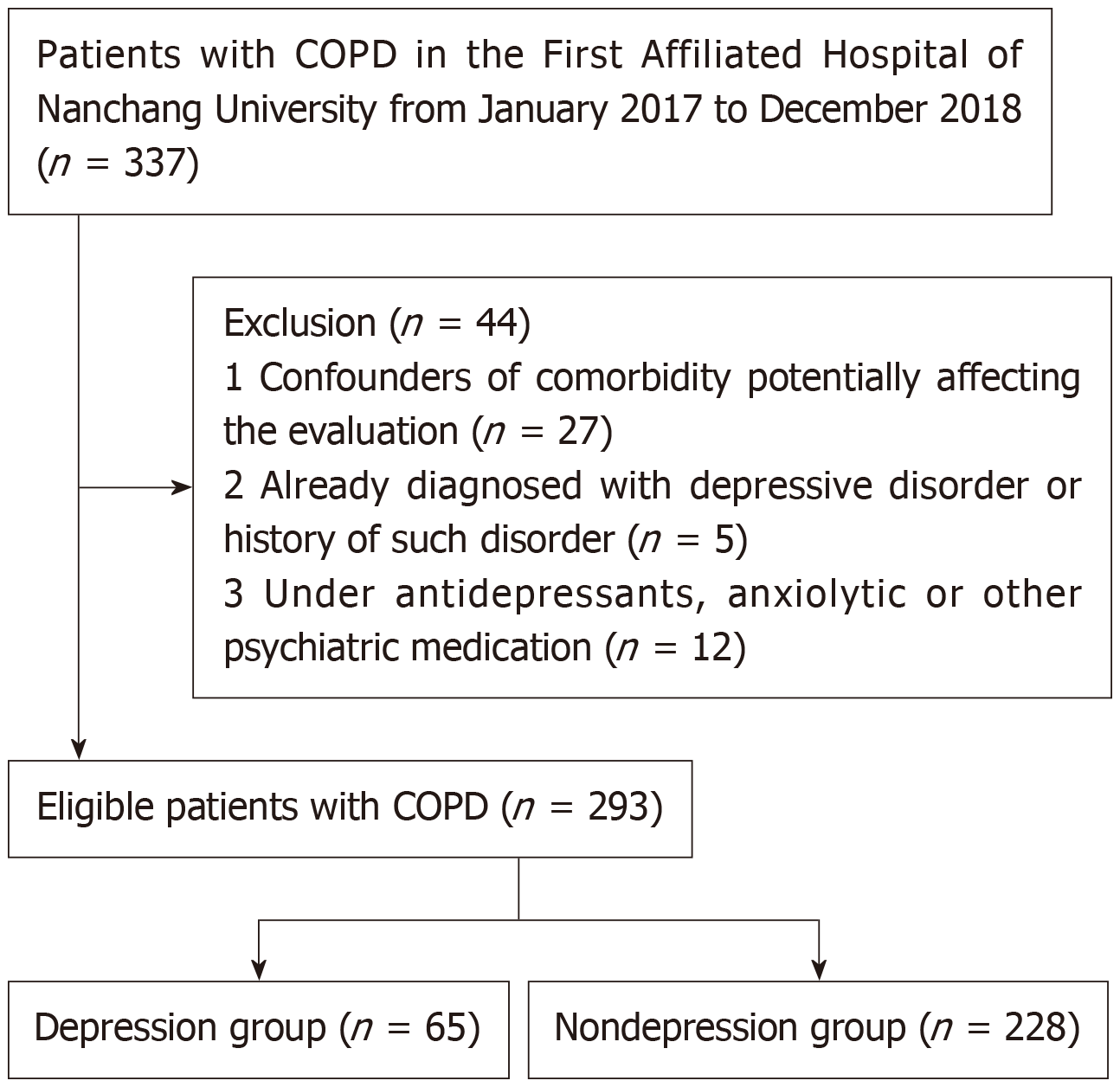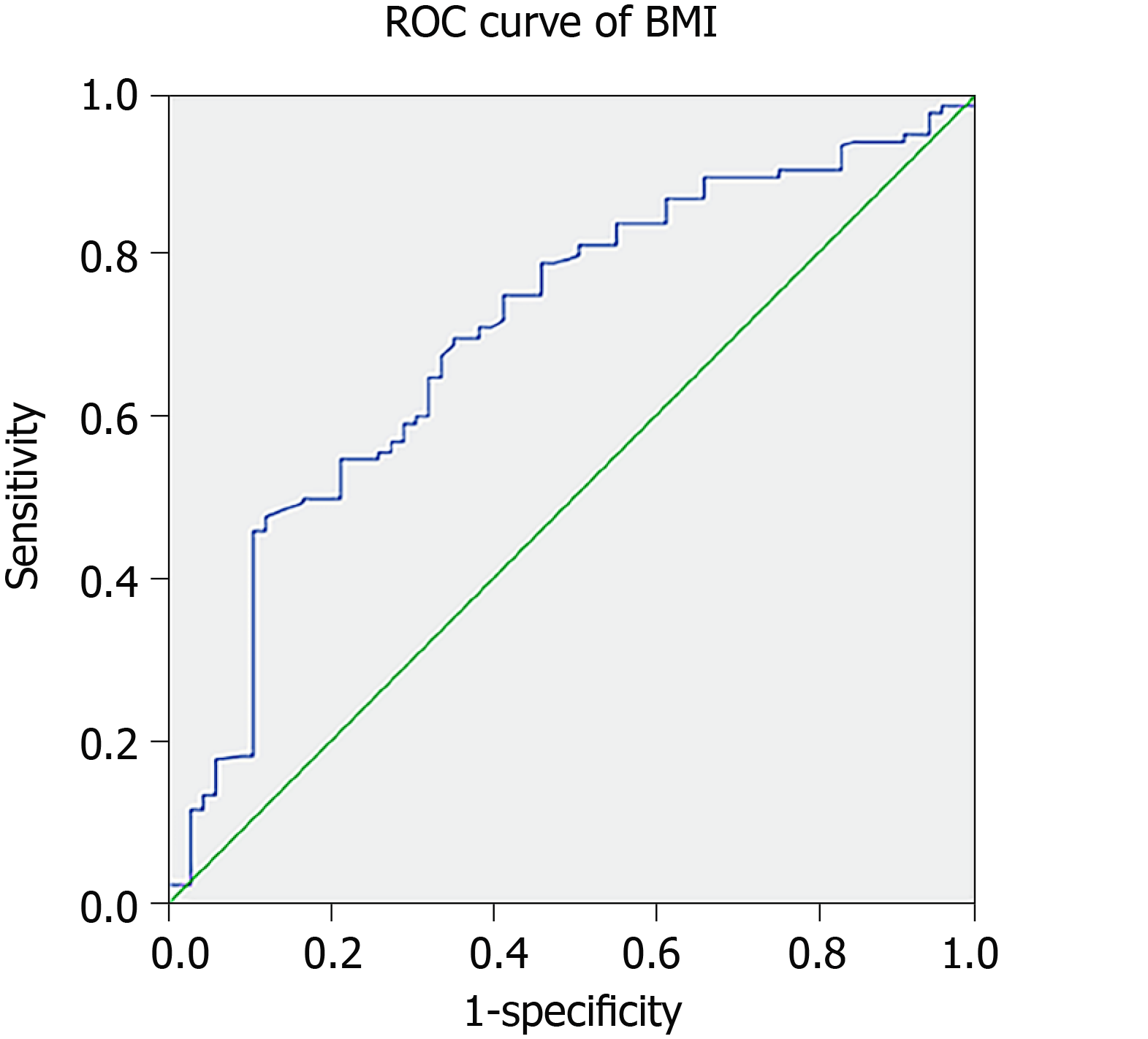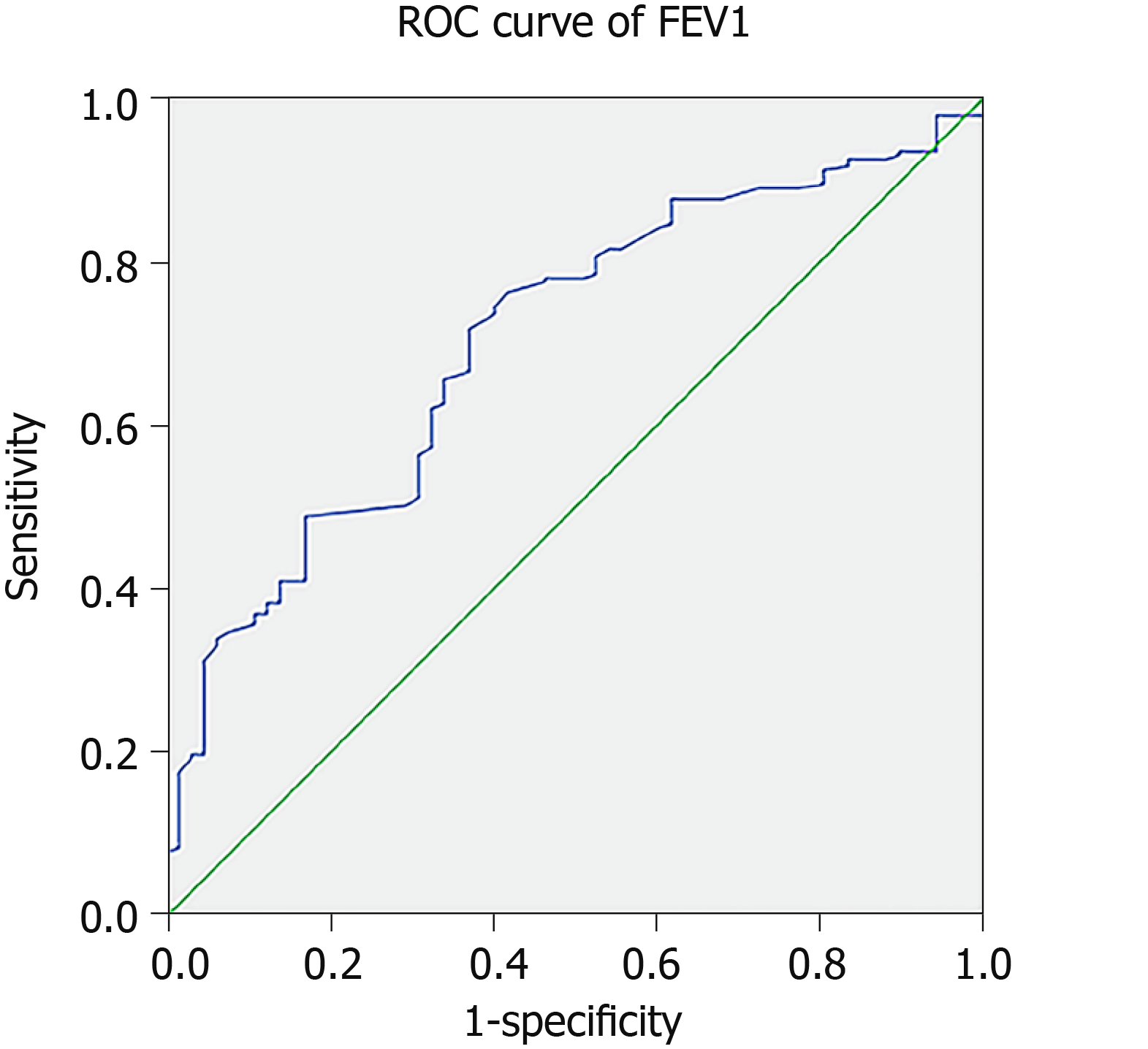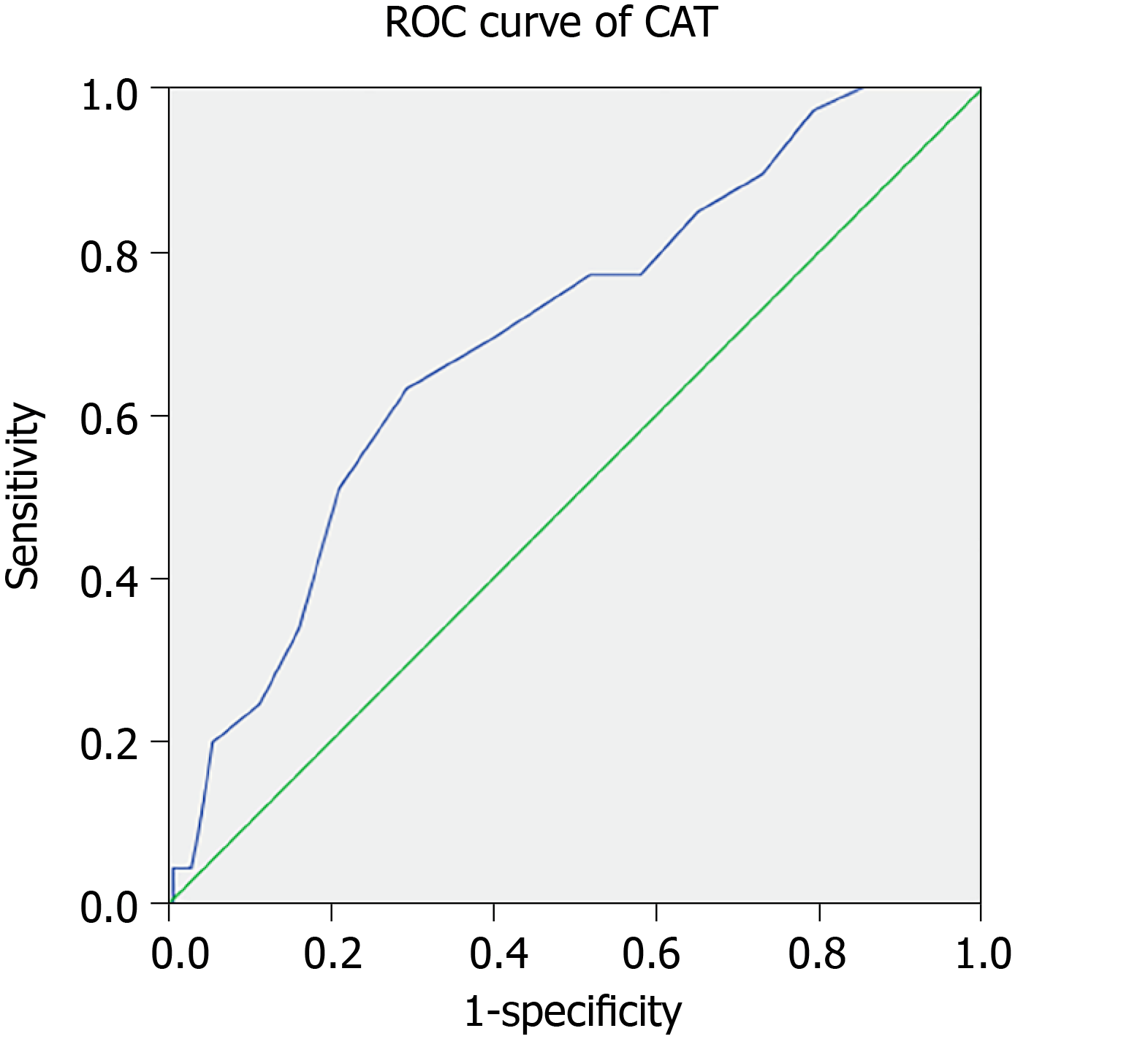Copyright
©The Author(s) 2020.
World J Psychiatr. Apr 19, 2020; 10(4): 59-70
Published online Apr 19, 2020. doi: 10.5498/wjp.v10.i4.59
Published online Apr 19, 2020. doi: 10.5498/wjp.v10.i4.59
Figure 1 Selection of the study participants.
COPD: Chronic obstructive pulmonary disease.
Figure 2 Receiver operating characteristic curve of body mass index.
The receiver operating characteristic curve demonstrated the sensitivities and specificities of body mass index for predicting the risk of depression in patients with chronic obstructive pulmonary disease. ROC curve: Receiver operating characteristic curve; BMI: Body mass index.
Figure 3 Receiver operating characteristic curve of forced expiratory volume in 1 s.
The receiver operating characteristic curve demonstrated the sensitivities and specificities of forced expiratory volume in 1 s for predicting the risk of depression in patients with chronic obstructive pulmonary disease. ROC curve: Receiver operating characteristic curve; FEV1: Forced expiratory volume in 1 s.
Figure 4 Receiver operating characteristic curve of chronic obstructive pulmonary disease assessment test score.
The receiver operating characteristic curve demonstrated the sensitivities and specificities of the chronic obstructive pulmonary disease assessment test score for predicting the risk of depression in patients with chronic obstructive pulmonary disease. ROC curve: Receiver operating characteristic curve; CAT: Chronic obstructive pulmonary disease assessment test.
- Citation: Yao HM, Xiao RS, Cao PL, Wang XL, Zuo W, Zhang W. Risk factors for depression in patients with chronic obstructive pulmonary disease. World J Psychiatr 2020; 10(4): 59-70
- URL: https://www.wjgnet.com/2220-3206/full/v10/i4/59.htm
- DOI: https://dx.doi.org/10.5498/wjp.v10.i4.59












